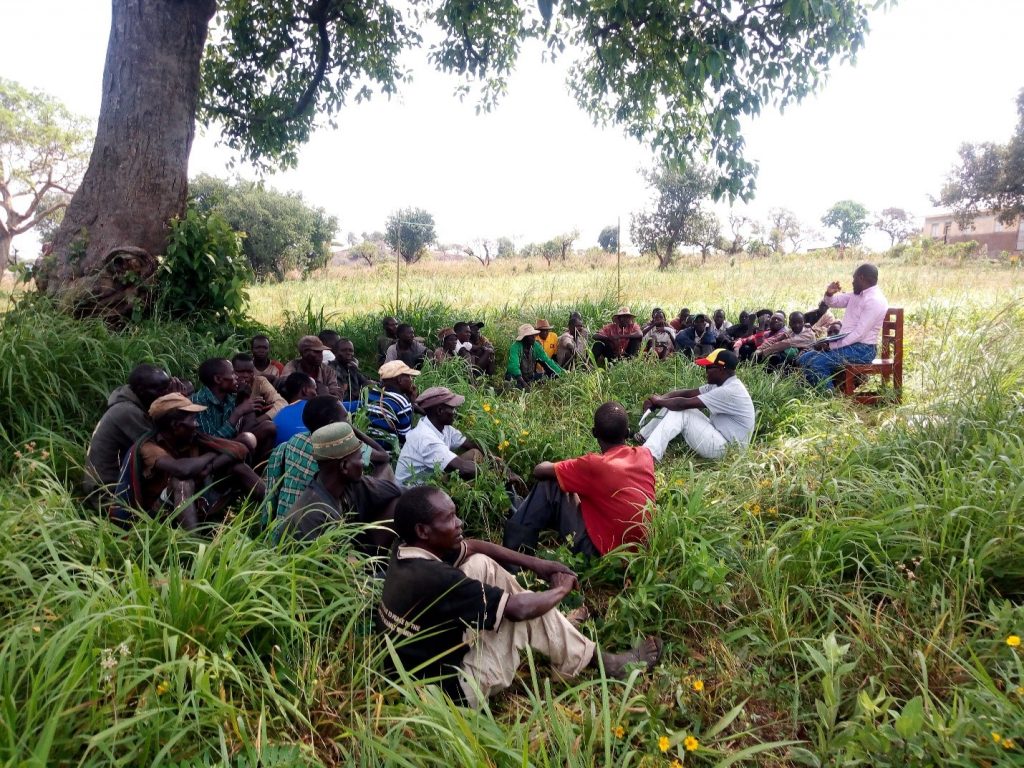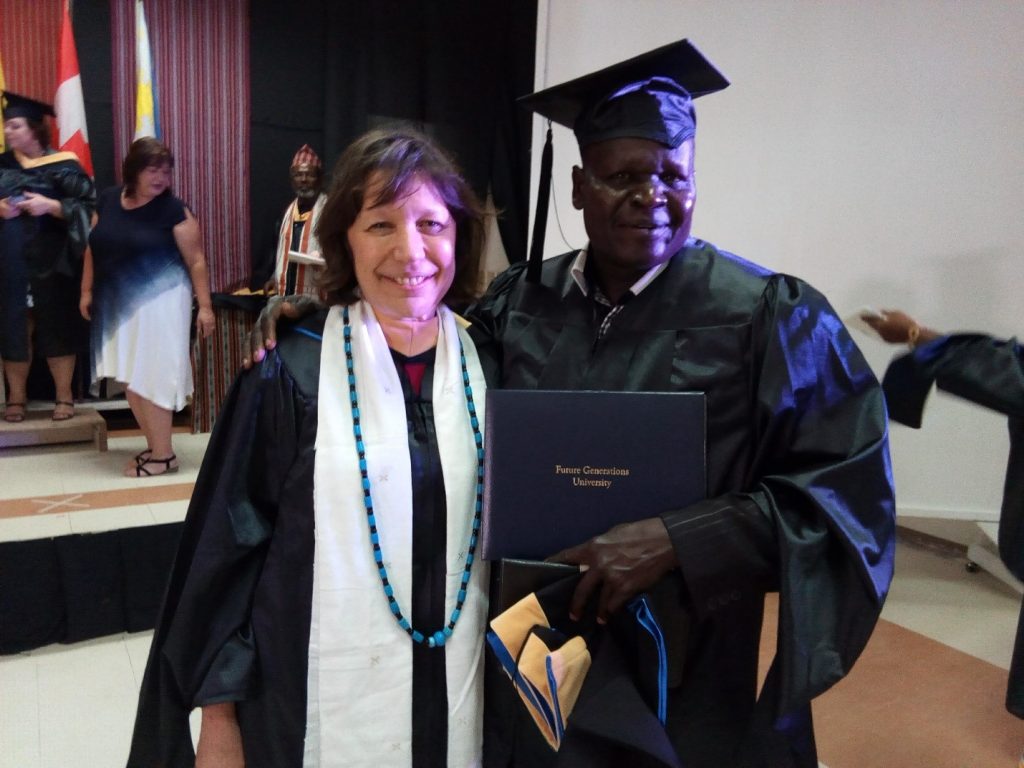“The Master’s degree has transformed my thinking on the community. My thinking now is more of listening to communities, analyzing their situations with them and drawing options for responses with them”.
Future Generations University is committed to empowering local people by giving them a voice and visibility. This is exactly what alumnus Vincent Abura is doing in his job at Gulu University in Uganda. As a sociologist in the University’s Research Team, Vincent is working with the Ik and Tepeth indigenous people in the mountainous area of Karamoja, helping to ensure their rights and that they have a voice for their future.

Vincent conducting research interviews with me in Karion, Kaabong District
One of the innovations of the Future Generations pedagogy is the Community Lab, requiring students to engage in their community in each course. Vincent said, “The Community Lab as one of the study modes of the MA, pragmatically transformed my skills of interacting with community members in the current research that I am involved with at the University.” Students don’t wait until they are done with the degree to apply what they learn; rather they immediately put into practice the skills and knowledge gained. In Vincent’s case, he was able to study the non-formal education program of nomadic children in the Karamoja area during the course of his degree, providing him with skills he is currently using in his job.

Vincent & his practicum advisor, Christie Hand – Philippines Commencement
In a world of constantly changing realities, it is critical that we all learn to think and problem solve in whatever context we find ourselves in, and change the way in which we learn in and with our community.
When asked how this degree has transformed his thinking in this regard, Vincent replies, “ I just don’t take the face value of an issue before me as it is, but I give a thorough analysis through probing from different angles, drawing alternatives and options for solutions.”
Vincent graduated from Future Generations University with a Master’s degree in Applied Community Development in October 2017, at commencement held in the Philippines. His classmates consisted of community development professionals from Ethiopia, Ghana, India, Nepal, Somalia, Sudan, Uganda, and the United States. They supported each other throughout the two years of graduate study, as they each balanced full-time work, course work, and family responsibilities.


